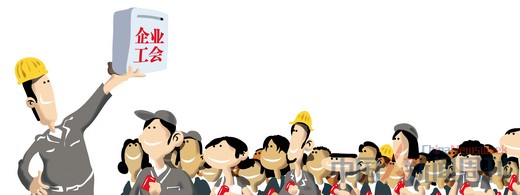
(Ecns.cn) -- A far-reaching reform of Chinese trade unions is expanding in the southern city of Shenzhen, Guangdong Province, where a number of labor unions are trying to truly represent workers and speak up for their rights, reports China Newsweek.
This year a total of 163 large-scale local companies, each with more than 1,000 employees, will hold elections of trade union leaders, and workers will use their own judgment about who can better assert their interests.
Wang Yang, Party secretary of Guangdong Province and member of the national Politburo, lauded the move by saying that trade unions should function like this naturally; they must fight harder for workers' rights in the future.
Real representation
Workers at OHMS Electronics (Shenzhen) Co, Ltd, owned by Japan's electronics giant Panasonic, were thrilled on May 27, 2012, after electing their new trade union leader. The election was particularly meaningful because it was conducted according to the Trade Union Law.
OHMS workers had gone on strike in March, making 12 demands concerning wage increases and better welfare, but the company would not assent. About 700 workers then took part in a sit-in to pressure the company's leaders.
To make peace between OHMS and its employees, the Shenzhen Federation of Trade Unions persuaded the company to hold a democratic re-election and grant power to the trade union council members. This differs from most companies, where trade unions are controlled by management.
During the re-election, 75 representatives elected by all union members at OHMS chose 11 union council members from a total of 14 candidates, and also elected a president from a choice of three candidates.
The election was deemed a success, as the trade union had eventually won the public's trust. Though media refer to it as a "direct election," government officials have preferred to call it a "normalized democratic election."
Shenzhen steps forward
In terms of trade union reform, Shenzhen has always been ahead of other regions. In 2007, the Shenzhen Federation of Trade Unions stated that all companies, whether state-owned or privately-run, must set up unions to protect their workers' interests.
Since then, large foreign companies and multinationals have gradually established trade unions for their employees in the city.
Ricoh (Shenzhen) Co, Ltd, a Japanese-owned copy machine maker, is a typical example. It not only set up a trade union in 2007, but has also held democratic elections for its union council, says China Newsweek.
On April 29 of this year, when Wang Yang paid a visit to Ricoh Shenzhen, he praised the company for its outstanding achievements in terms of strengthening the union, revealed Qian Jialiang, the company's trade union leader.
Qian recalled that elections were not carried out smoothly at first, but that the federation had told them not to be afraid of making mistakes, because democracy is a process and workers need time to learn it.
At the very beginning, only half of the employees joined the union, but now all of them are members at Ricoh Shenzhen, said Qian.
All council members have their own duties in different departments, and they do not get paid for union work at all, added Qian.
Successful negotiations
A trade union should truly represent a company's employees and optimize benefits for them, said Li Yonghai, a former member of the All-China Federation of Trade Unions (ACFTU) and director of its research department.
As one of the two sides in labor relations, it is obliged to work tirelessly to regulate such relations, which cover a wide range of matters such as employment, wages and salaries, social security and welfare, occupational safety and health, and vocational education, said Li.
Ricoh Shenzhen's trade union is doing well in this sense, as it not only has set up a multilevel dialogue mechanism but is also functioning actively, noted Li.
Last year, Ricoh's management said the base pay for employees would be increased by at most 8 percent in 2012, citing the impacts of the disastrous earthquake in Japan, heavy flooding in Thailand and Europe's debt crisis.
The company's trade union did not respond immediately, but conducted a meticulous investigation into the matter and came to the conclusion that the pay rise should instead be 19 percent, after considering inflation and other factors.
After several rounds of negotiations, the management approved the data and reasoning of the union's investigation; the final decision was a 15-percent base pay rise.
The employees were satisfied with the result, and the number of those agreeing to renew their contracts with Ricoh has peaked this year, notes China Newsweek.

Copyright ©1999-2011 Chinanews.com. All rights reserved.
Reproduction in whole or in part without permission is prohibited.